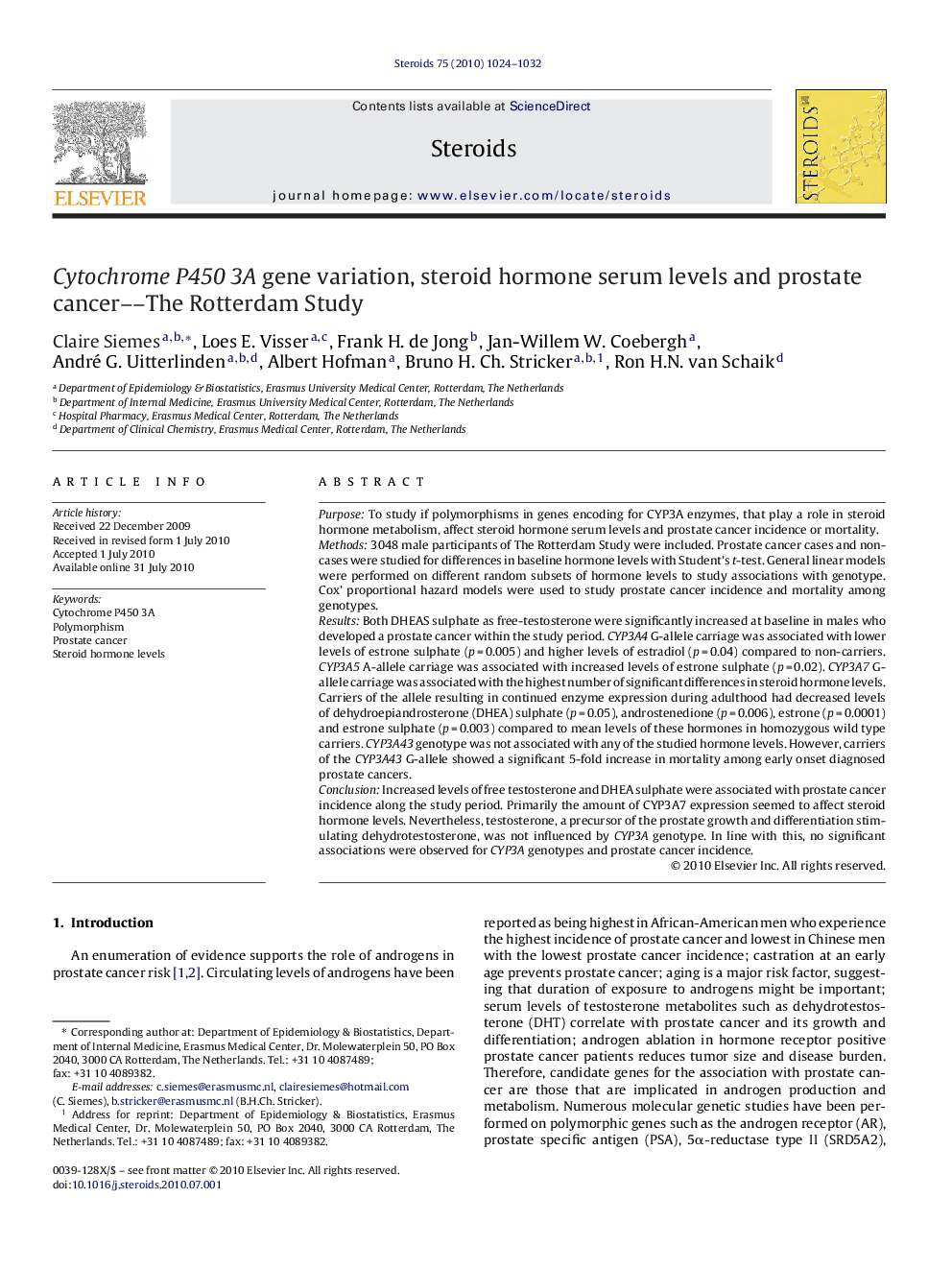| Article ID | Journal | Published Year | Pages | File Type |
|---|---|---|---|---|
| 2028168 | Steroids | 2010 | 9 Pages |
PurposeTo study if polymorphisms in genes encoding for CYP3A enzymes, that play a role in steroid hormone metabolism, affect steroid hormone serum levels and prostate cancer incidence or mortality.Methods3048 male participants of The Rotterdam Study were included. Prostate cancer cases and non-cases were studied for differences in baseline hormone levels with Student's t-test. General linear models were performed on different random subsets of hormone levels to study associations with genotype. Cox’ proportional hazard models were used to study prostate cancer incidence and mortality among genotypes.ResultsBoth DHEAS sulphate as free-testosterone were significantly increased at baseline in males who developed a prostate cancer within the study period. CYP3A4 G-allele carriage was associated with lower levels of estrone sulphate (p = 0.005) and higher levels of estradiol (p = 0.04) compared to non-carriers. CYP3A5 A-allele carriage was associated with increased levels of estrone sulphate (p = 0.02). CYP3A7 G-allele carriage was associated with the highest number of significant differences in steroid hormone levels. Carriers of the allele resulting in continued enzyme expression during adulthood had decreased levels of dehydroepiandrosterone (DHEA) sulphate (p = 0.05), androstenedione (p = 0.006), estrone (p = 0.0001) and estrone sulphate (p = 0.003) compared to mean levels of these hormones in homozygous wild type carriers. CYP3A43 genotype was not associated with any of the studied hormone levels. However, carriers of the CYP3A43 G-allele showed a significant 5-fold increase in mortality among early onset diagnosed prostate cancers.ConclusionIncreased levels of free testosterone and DHEA sulphate were associated with prostate cancer incidence along the study period. Primarily the amount of CYP3A7 expression seemed to affect steroid hormone levels. Nevertheless, testosterone, a precursor of the prostate growth and differentiation stimulating dehydrotestosterone, was not influenced by CYP3A genotype. In line with this, no significant associations were observed for CYP3A genotypes and prostate cancer incidence.
Research highlights▶ Free testosterone and DHEA sulphate levels are significantly increased in males before the diagnosis of prostate cancer. ▶ CYP3A7 G-allele is associated with steroid hormone levels. ▶ CYP3A seems to have no influence on testosterone or dehydroepiandrosterone. ▶ Prostate cancer incidence was not influenced by CYP3A genotypes.
